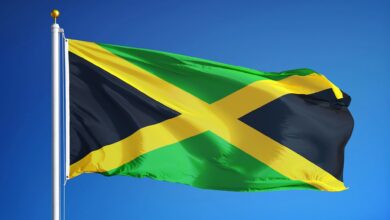(CARICOM Secretariat, Turkeyen, Greater Georgetown, Guyana) Caribbean Community (CARICOM) support to Haiti, expands in 2012 with its agreement to support the public health education activities of the international Organization for Migration (IOM) and Radio Boukman a community radio station styled “the voice of Cite Soleil”. the radio initiative is being conducted through edutainment; learning through a medium that both educates and entertains.
That medium is audio; packaged radio programmes which communicate messages of environmental sanitation to the hundreds of thousands of Haitians who daily use public motor transport, the Tap-Taps. These painted buses or converted pick-up trucks dominate Haitian road traffic as the main form of public transport. The name ‘Tap-Tap” comes from the communication process between passenger and driver. When a passenger needs to disembark he/she would tap the side of the vehicle with coin (the fare) and the driver would stop.
The Project is called “Radyo Tap Tap”. Aired in the Tap-Taps, it is emerging as an effective interactive channel for simple messages on cholera prevention and treatment, as radio teams sign up Tap-Tap drivers to participate and listeners respond by cell phone to questions on the messages.
Other exciting initiatives already underway to engage Port-au-Prince’s Inner city youth include features on cholera response in ‘Chimen Lakay’ a popular journal on critical public education which targets Cite Soleil. The CARICOM support is made possible through funding by Government of Australia through AusAID, the Australian Government Overseas Aid Program. The partnership with IOM is strategic and advantageous, given the active role of the IOM in many areas of Haiti, its familiarity with Haitian societies, especially the Displaced, and its extensive staff of Haitian specialists.
CARICOM maintains the CARICOM Representation Office in Haiti (CROH), headed by Ambassador Earl Huntley. Consequent upon the devastation wrought be the earthquake however, the Community activity in Haiti has increased considerably as has strategic collaboration with other agencies, such as the IOM, the International Institute for Cooperation in Agriculture (IICA) and the Caribbean Agriculture Research and Development Institute, (CARDI)
On 12 January 2010 Haiti was struck by a powerful earthquake which devastated much of the country leaving the capital city, Port-au-Prince, its environs and other cities such as Leogane in ruins. The devastation resulted in one of the worst humanitarian crises in decades, destroying over 300,000 homes and communal sanitation facilities, well over 1000 educational institutions, ministerial and public administration buildings and destroying or rendering unusable over 50 hospitals and other health facilities.
CARICOM has been continuously involved in the recovery which began with the Declaration of Santo Domingo, primarily in the form of advocacy at the regional and international level as well as relief efforts, at the specific request of the Government of Haiti.




